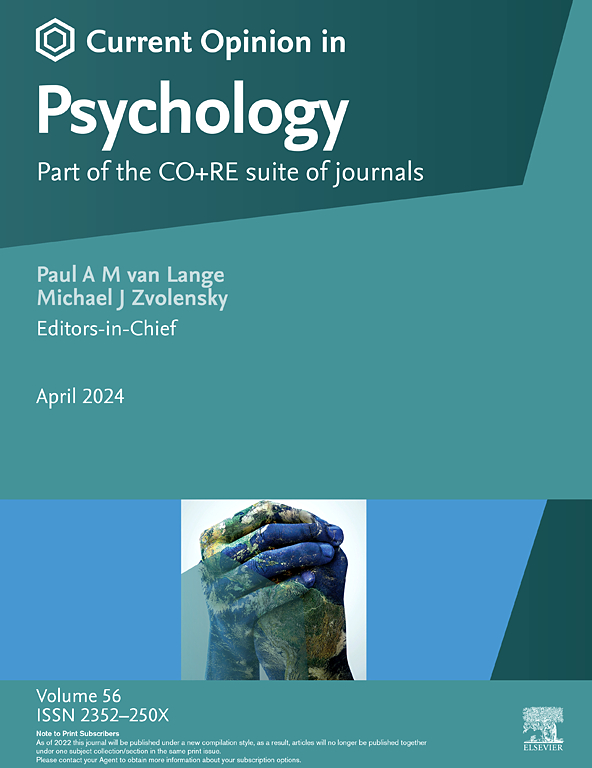Therapists’ beliefs about traumatic memory: Possible effects on therapy proceedings and contributions to false memory formation
IF 6.9
2区 心理学
Q1 PSYCHOLOGY, MULTIDISCIPLINARY
引用次数: 0
Abstract
How psychotherapists understand and approach trauma-related memory remains clinically and ethically significant, particularly given the risk of false memory formation through attempts to recover unremembered trauma. This review synthesizes recent findings on therapists' beliefs about traumatic memory, memory recovery, and self-reported therapy practices. Despite limited data, many therapists demonstrate awareness of memory's malleability while also believing in memory blocking or repression. These beliefs do not necessarily imply problematic assumptions or practices, but they should be regarded as risk factors, given their association with suggestive techniques. Few studies on therapist behavior exist. They imply that some therapists still attempt to recover unremembered trauma memories, despite there being a consensus that this should be avoided. Overall, the findings highlight the need for conceptual clarity in research, further research into suggestive therapist behavior, and integration of memory science in therapist training.
治疗师对创伤记忆的信念:对治疗过程的可能影响和对错误记忆形成的贡献
心理治疗师如何理解和处理与创伤相关的记忆在临床上和伦理上仍然具有重要意义,特别是考虑到通过试图恢复不记得的创伤而形成错误记忆的风险。这篇综述综合了最近关于治疗师对创伤记忆、记忆恢复和自我报告治疗实践的看法。尽管数据有限,但许多治疗师证明了记忆的可塑性,同时也相信记忆会被阻断或压抑。这些信念不一定意味着有问题的假设或做法,但鉴于它们与暗示性技巧的联系,它们应被视为风险因素。关于治疗师行为的研究很少。他们暗示,一些治疗师仍然试图恢复未被记住的创伤记忆,尽管有一种共识认为这应该避免。总的来说,研究结果强调了研究概念清晰化、对暗示治疗师行为的进一步研究以及在治疗师培训中整合记忆科学的必要性。
本文章由计算机程序翻译,如有差异,请以英文原文为准。
求助全文
约1分钟内获得全文
求助全文
来源期刊

Current Opinion in Psychology
PSYCHOLOGY, MULTIDISCIPLINARY-
CiteScore
12.10
自引率
3.40%
发文量
293
审稿时长
53 days
期刊介绍:
Current Opinion in Psychology is part of the Current Opinion and Research (CO+RE) suite of journals and is a companion to the primary research, open access journal, Current Research in Ecological and Social Psychology. CO+RE journals leverage the Current Opinion legacy of editorial excellence, high-impact, and global reach to ensure they are a widely-read resource that is integral to scientists' workflows.
Current Opinion in Psychology is divided into themed sections, some of which may be reviewed on an annual basis if appropriate. The amount of space devoted to each section is related to its importance. The topics covered will include:
* Biological psychology
* Clinical psychology
* Cognitive psychology
* Community psychology
* Comparative psychology
* Developmental psychology
* Educational psychology
* Environmental psychology
* Evolutionary psychology
* Health psychology
* Neuropsychology
* Personality psychology
* Social psychology
 求助内容:
求助内容: 应助结果提醒方式:
应助结果提醒方式:


